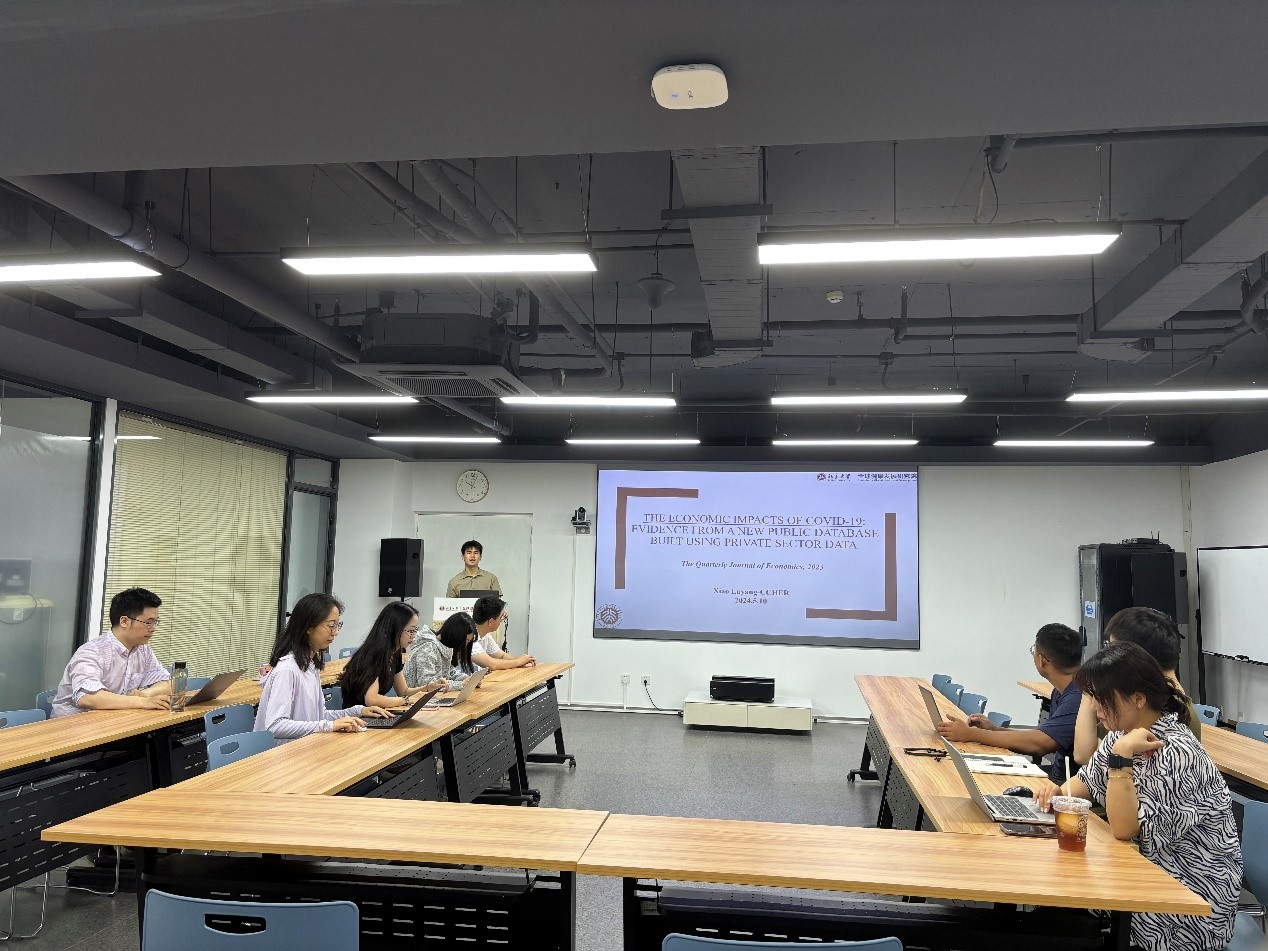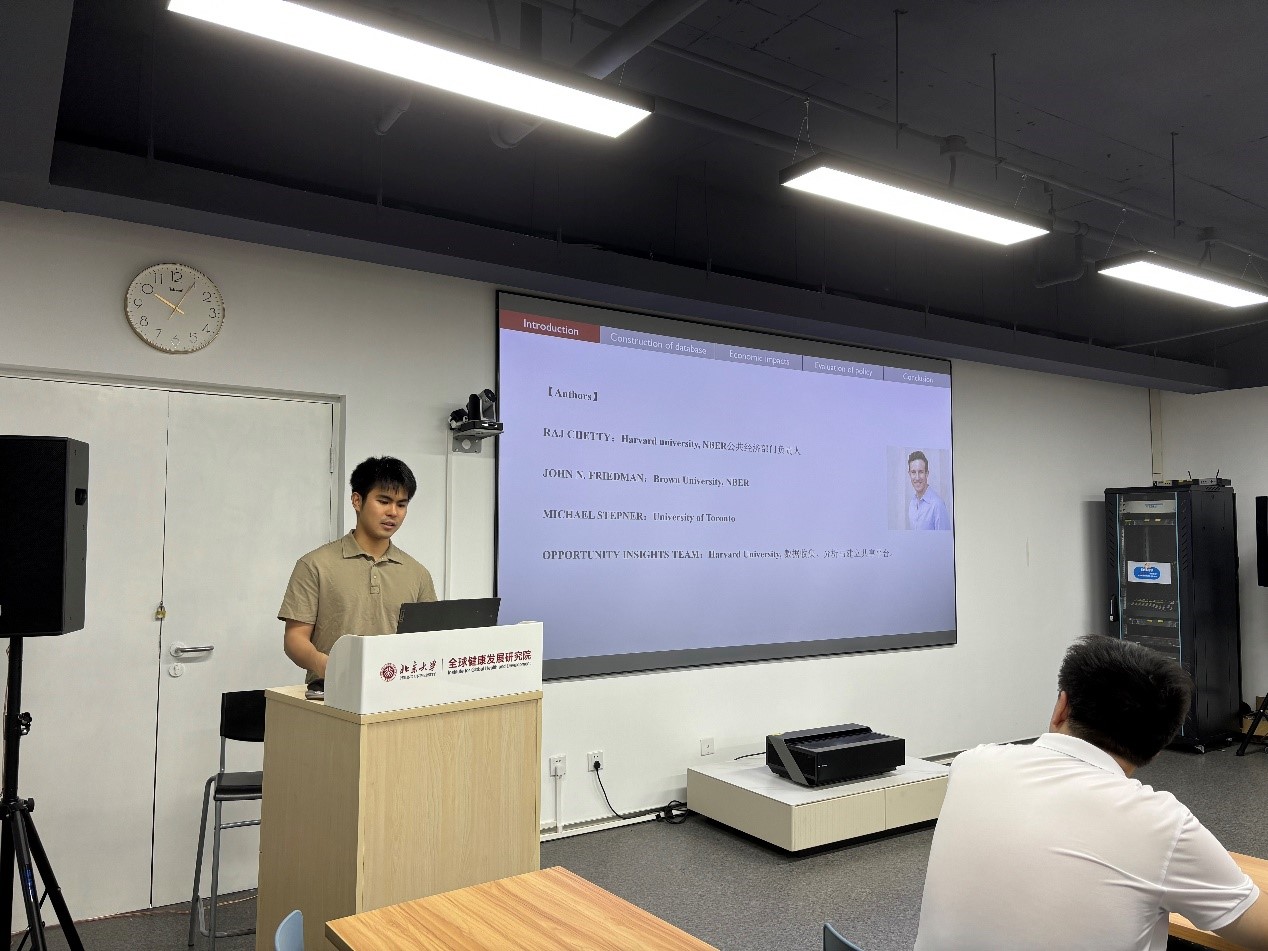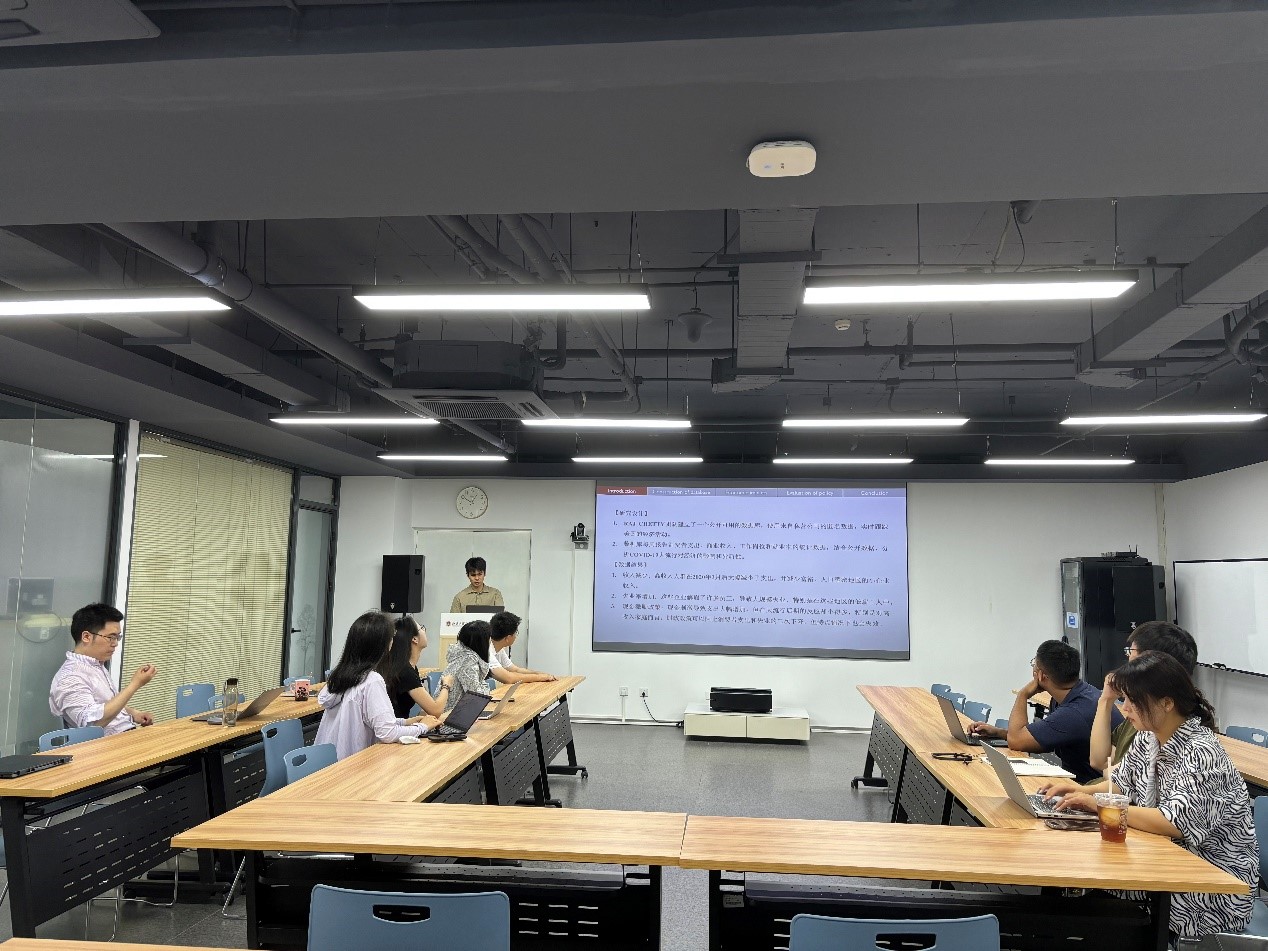On the morning of May 10, 2024, from 10:00 to 11:00, the Global Health Development Institute at Peking University successfully held the 9th Spring Reading Club. The speaker for this event was Xiao Luyang, a research scholar at the Global Health Development Institute at Peking University.

Xiao Luyang shared an article published in 2023 in The Quarterly Journal of Economics by Raj Chetty and his team from Harvard University, including the Opportunity Insights Team. The article titled "The Economic Impacts of Covid-19: Evidence from a New Public Database Built Using Private Sector Data."

Raj Chetty and his team established a publicly available database using anonymous data from multiple private companies to track real-time economic activity in the United States. This database has been reporting weekly statistics on consumer spending, business revenue, job postings, and employment rates for counties in the United States since 2020. Combined with public data, the article macro-analyzes the impact and heterogeneity of the COVID-19 pandemic on the economy.
The paper swiftly diagnoses the fundamental factors causing the economic crisis by analyzing cross-sectional heterogeneity. Due to health concerns, high-income individuals significantly reduced their spending, leading to business revenue losses and continued decline in low-wage employment in affluent areas.
The main conclusions of the article are as follows:
1. Decrease in resident spending: The pandemic led to a significant reduction in spending by high-income individuals, especially in industries requiring face-to-face interaction. Decrease in business revenue: The pandemic significantly reduced the income of small businesses in affluent, densely populated areas.
2. Increase in unemployment rate: Decreased business revenue led to massive layoffs, especially among low-wage workers in affluent, densely populated areas. They experienced greater and more prolonged unemployment.
3. Economic recovery: By December 2021, consumer spending and job postings had fully recovered, but employment rates in low-wage jobs remained depressed.
4. Fiscal stimulus: Cash stimulus spending led to a significant increase in spending at the onset of the pandemic, but the response was much smaller in the later stages of the pandemic, especially for high-income households.
5. Marginal propensity to spend: Fiscal policy can prevent continuous declines in consumer spending and unemployment, but when the initial shock to consumer spending stems from health issues, fiscal policy cannot restore full employment.
The main contribution of the article is that the authors and their team compiled data from private companies to construct public statistics. The database allows for rapid, real-time policy evaluation, demonstrating the changing effects of fiscal stimulus spending during the pandemic. Although there was a sharp gradient of spending cuts associated with job losses in the early stages of the pandemic, it disappeared within a few months, mitigating the risk of continued economic downturn after the removal of economic stimuli.

Citation: Raj Chetty, John N Friedman, Michael Stepner, Opportunity Insights Team , The Economic Impacts of COVID-19: Evidence from a New Public Database Built Using Private Sector Data, The Quarterly Journal of Economics, Volume 139, Issue 2, May 2024, Pages 829–889, https://doi.org/10.1093/qje/qjad048
(By XIAO Luyang)